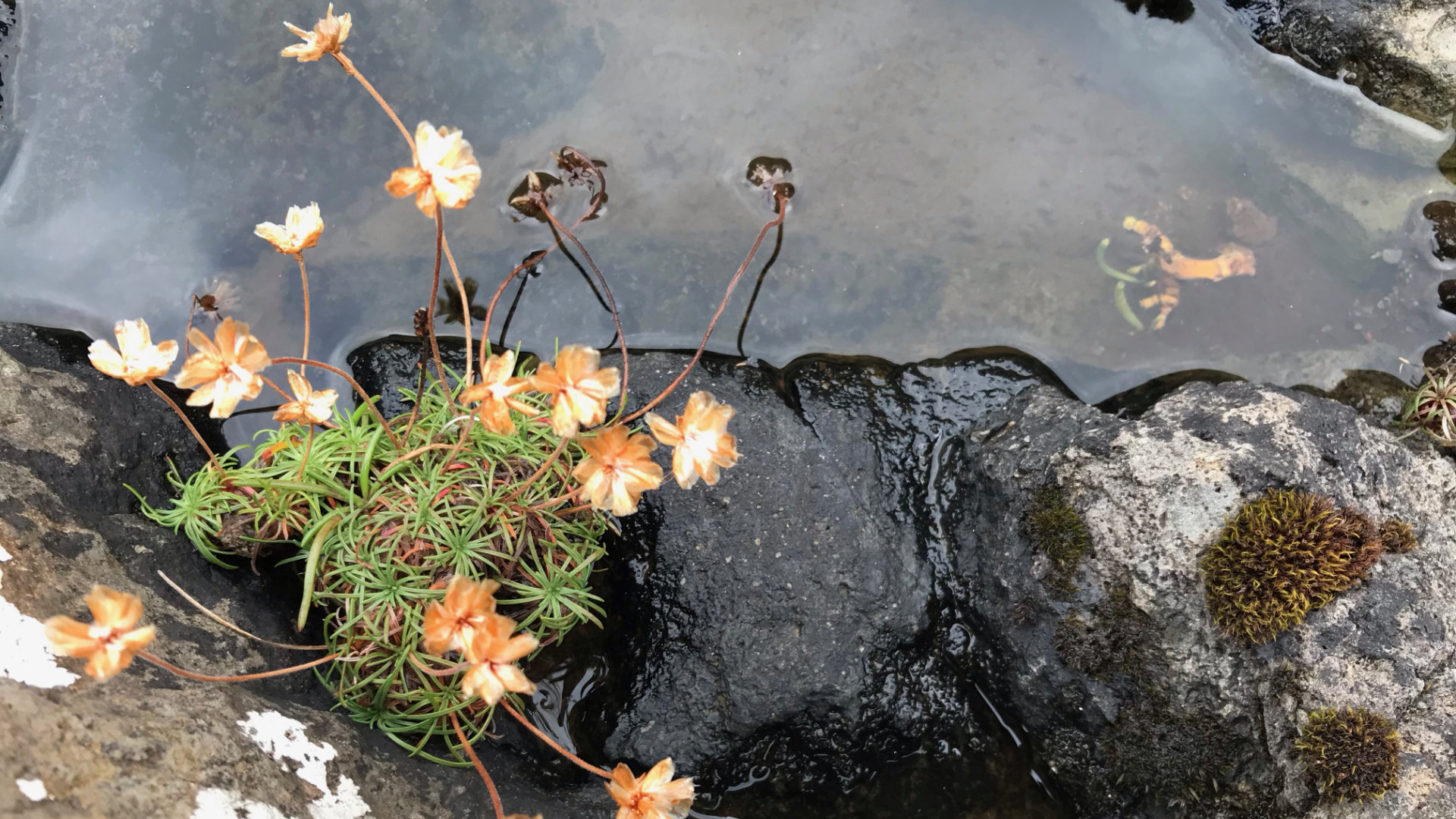Often in talks about mindfulness, we have a tendency to talk about how we can learn and practice to be with difficulties, and sometimes it can seem as if meditation and mindfulness is mostly concerned with how better to be able to handle life´s difficulties, and this is obviously very important to learn, but here I am going to talk about actively choosing to take the reins of our attention, and learn about the practice of gratitude, which is a great way to train our mind for more joy and contentment.
And I think this is the main reason why mindfulness has become so popular, it begins by stating the obvious, the difficulty of this human life, but it doesn’t stop there, it teaches us how we can practice so that life becomes rich, meaningful and maybe even a liberating experience.
One of the 6 perfections in Buddhism, is generosity, and my Tibetan Buddhist teacher said, that his teacher, who is an almost 90 year old Tibetan geshe, had told him, that he believed, that one who sincerely practiced only generosity and nothing else could get enlightened.
Now, Generosity and gratitude are deeply intertwined. If you are a generous person, I believe it is very likely that you are also a grateful person, because when you feel grateful, nothing is missing, you have enough, and this sense of enoughness and abundance brings forth a natural wish to give, to be generous, to bring to others the gift of a grateful mind.
So, I am actually an anthropologist by training, and I always found linguistic anthropology to be particularly interesting, because words can tell us so much about who we truly are, and how we make sense of things. And what I have found since I have been teaching mindfulness in various languages, is that our language is full of ancestral wisdom.
So in Spanish, the word for thank you is “gracias” which is the same word as grace. But even more interestingly, the word for gift, a present, is also in Spanish presente, the exact same word as presence. So the dynamics of generosity and gratitude in this ancestral wisdom, is that when we give presence, grace is given to us. So presence, the deep root of mindfulness, brings about grace.
You could say, that generosity is a form of letting go, and gratitude is a form of receiving lifes´ fullness
We all know this, that we are living in grace, that we are receiving lifes’ gift, when we are feeling grateful. Furthermore, we are most probably in the present moment when we feel gratitude, becase when we are infused by gratefulness, we are not wishing that things were any different than they are. When wee are grateful we are filled with contentment for this moment. When we are grateful, nothing is missing - we can rest in the moment and are not craving for more - we are resting in the enoughness of the moment.
For me personally gratefulness is my favourite and most powerful “going through the day” practice. It is such a naturally easy practice, because we are all familiar with it. It doesn’t involve intricate rituals, we don’t have to sit down in a quiet place to practice it, we don’t even have to close our eyes. All we have to do, is to actually remember, that gratefulness is a possibility in every single moment of our lives.
And this brings me to the Benedictine monk David Steindl Rass, who says, that we can of course not be grateful for everything in life, but we can be grateful in any moment.
What he means is that we can not be grateful for racial injustice or any other injustices, nor for a serious medical diagnosis, or loss or other disasters, but that doesn’t mean, that at the same time, any given moment contains so much more than that injustice or that illness. There is so much that we can be grateful for always, if we know to look for it. A flower, the light from the sun, the fascinating ever changing sky, the wind against our cheek, a child playing, beautiful music, good coffee.
I mean how amazing is it, that we as humans have the capabilities to dwell in, and appreciate the smell of roses, be filled with wonder and awe by the beauty of a sunset or loose our selves completely in Mozarts music or be so filled with love for a dear one that we literally feel our hearts could burst - how can we not appreciate this precious human life?
As Jon Kabat Zinn has said:
“Mindfulness is a celebration of who you are as a human being… It´s an adventure to discover who you really are…”
And it´s wholly up to us, how we want to incline our minds, do we choose to train our mind in gratefulness and other elevated mind states, or do we just let life toss us around in the never ending waves of life, which so easily leave us gasping for air. This kind of struggle can so easily be the result, if we just let our survival instincts control the reins to our happiness and fulfilment.
With mindfulness we are given the tools to be present with what is, to not run away from difficulty, but the gift is the development of a more spacious mind that can hold more than one thing at the time.
Such a spacious mind can hold deep sorrow for a loss, and at the very same time be grateful for the freshness and nurturing of the rain caressing the grass.
Such a mind can be deeply involved in fighting for justice in the world, without getting lost in the pain or anger of injustices. It can acknowledge the need for action, and at the same time nurture itself with the truth of the beauty of a Childs spontaneous laughter.
A grateful mind is an equanimous mind, that can hold the 10.000 joys and the 10.000 sorrows at the very same time, and it is readily available to all of us. This is something we can practice, and when we do, it grows - it really is up to us!
Namaste!






